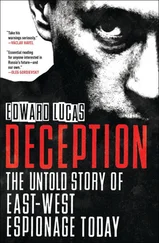It would be fair to criticise Sweden if it was heavily engaged in wasteful, unnecessary intelligence cooperation with America, against a distant or irrelevant target. But that is not the case either. Russia’s behaviour in recent years provides ample proof of the problem. Nor can Swedish-American ties be criticised on the principled ground that spying (by human or electronic means) on foreign countries is illegal: it isn’t. Nor does the Swedish public seem bothered by any of this. [33] http://www.thelocal.se/20131108/swedes-not-worried-about-internet-surveillance-survey
Greenwald’s case against Sweden (at least as far as can be discerned and inferred from his interview on Swedish television: he has declined to respond to my requests for comment) rests on America’s wrongdoing. The United States, he repeatedly notes, fought a disastrous and illegal war in Iraq, and now systematically breaches laws and norms in its bulk data collection. SO any country engaged in intelligence cooperation with America is tainted too. He also assumes, but does not prove, that the privacy of Swedish citizens is breached as a result of these ties. He dismisses the utility of such cooperation out of hand, even when aimed at terrorists, on the grounds that they already know the West’s capabilities and take steps to avoid and evade them.
Greenwald makes much of the fact that the espionage links include economic targets. This, he argues, is hypocritical. America complains about Chinese spying on big US companies. So why is America—with Swedish help—spying on Russian energy companies? The answers would fill a book. (Readers may find mine, The New Cold War , useful.) But the brief and simple point is that Russia’s energy companies are essentially political entities. Their senior managers are Kremlin appointees and cronies. They spin money off into to ‘black cash’ for the use of the Russian authorities in off-the-books projects at home and abroad. They are part of Russian foreign policy. If you worry about Russia, you worry about Gazprom.
The Snowdenistas’ attack on Sweden was not an aberration. Looking at the pattern of disclosures, a shift is visible from those that involve ‘evidence’ of mass surveillance, which is a matter of genuine public controversy (although the operations described so far are all legal and in my view justified) and of the controversial hacking techniques used by the NSA (which may be legal, but are more arguably unwise), towards material that affects only the national security of the countries concerned.
Brazil, for example, reacted with an appearance of fury to revelations that America and Canada were spying on it. [34] http://theworldoutline.com/2013/10/everyone-spying-brazil
It is now organising a conference on curbing foreign espionage. [35] http://m.theage.com.au/federal-politics/political-news/australias-reputation-in-indonesia-hits-new-low-20131123-2y2k2.html ; John Schindler, ‘Snowden’s Thunder Down Under’, The XX Committee, November 21, 2013, http://20committee.com/2013/11/21/snowdens-thunder-down-under ; http://www.abc.net.au/news/2013-11-18/australia-spied-on-indonesian-president-leaked-documents-reveal/5098860 ; http://www.smh.com.au/federal-politics/political-news/australias-reputation-in-indonesia-hits-new-low-20131123-2y2k2.html
Revelations of Australia’s spying on Indonesia infuriated the leadership in Jakarta and seriously damaged Australia’s relations with its Asian neighbours. Indonesia recalled its ambassador and cancelled an intelligence sharing agreement. Yet it is obvious that Australia would be interested in the political, economic and security thinking of a neighbouring country of 250m people, which presents a potential military threat and has been the source of terrorist attacks which have killed Australian citizens.
A few days after the Swedish disclosures, another leak revealed Norwegian cooperation with the NSA. It showed that the Norwegian intelligence services have good sources within Russia, that they benefit from American help in dealing with Russian spies in Norway, and that areas of mutual interest include the Kola peninsular (a border area strewn with nuclear facilities) and the Russian energy industry. [36] See (in English) http://www.dagbladet.no/2013/12/17/nyheter/samfunn/politikk/utenriks/overvaking/30877258
It is hard to see how such disclosures can be justified by an appeal to the public interest. Russian bombers make regular intrusions or near-intrusions into Norwegian airspace. In December 2007 Russia sailed a naval flotilla into the middle of Norwegian oil and gas fields in the North Sea and conducted an unannounced exercise there, disrupting their operations and endangering lives by forcing a suspension of the helicopter flights which supply the rigs.
To regard Russia as an illegitimate or unfair target reveals a strange view of international politics. Someone with a wider vision of the world might recall the cyber attack on Estonia in 2007, the war in Georgia in 2008, or the death of a British citizen (Alexander Litvinenko) murdered with a nuclear weapon in the centre of London in 2006. Also noteworthy is the story of the whistleblowing accountant Sergei Magnitsky, who uncovered a $230m fraud perpetrated against the Russian taxpayer by senior officials, and died in prison in 2009 after abuse and a beating. So too are the steps Russia has taken to prevent its ex-Soviet neighbours such as Ukraine and Armenia signing free-trade and cooperation deals with the European Union. A fair-minded outsider might also note the soaring Russian defence budget, its development of advanced weapons, and its arms sales to countries such as Syria.
To be sure, all these cases are open to multiple interpretations: Russia is not necessarily wrong to defend itself and pursue its national interests. But if you believe that democracies have the right to spy on anyone at all, Russia must be high up the target list. Similarly, anyone concerned with bringing abuses to light should regard Russia (and China and Iran) as major targets. Established international human rights organisations and civil liberties outfits certainly do. They berate Western countries for their many failings, and rightly so. But the bulk of the work of outfits such as Amnesty International, Article 19, Human Rights Watch and Reporters without Borders is on abuses in non-Western countries.
The priorities of the Snowden camp are rather different. Nothing so far in their revelations has cast non-Western, authoritarian regimes in a bad light. Was Snowden really unable to find anything in the NSA’s files that reveals abuses in such countries—perhaps collected by the agency but ignored by politicians for cynical reasons of Realpolitik ? It would be easy to imagine some intercepts on how the Communist slave-masters of Beijing regard with glee the repeated kow-tows of Western governments on the issue of Tibet. The NSA doubtless has some insights into what the Kremlin thinks of the British government’s trade-focused and amnesiac policy towards Russia. A true whistleblower might be expected to seek out such material. It would highlight Western cynicism and cowardice on human rights issues, and make the Snowden camp’s case far more effectively than spurious scandals about Swedish security.
This inconsistency, I believe, is the result not just of a blinkered world outlook but of something more troubling.
Chapter Two: Selective Outrage
The intelligence agencies’ capabilities are astonishing. They have the ability to plant malware on their targets’ computers: either remotely, or by intercepting them before they are delivered to the customer. They can approach targets when they are playing computer games, monitor their web browsing habits, turn on webcams and microphones remotely and invisibly, use a mobile phone to bug a room, or a computer, and far more besides. They can read text messages and listen to phone calls. They have extraordinary access to the fibre-optic cables which carry data between countries and continents. The NSA and allies scamper through the plumbing of the internet like mice through the nooks and crannies of an old house. Huge slices of electronic traffic can be warehoused for days or even weeks. Powerful computers and ingenious algorithms can search for patterns and connections in a way that only recently would have seemed unimaginable. [37] This judgment by an American district court judge, Richard Leon, outlines the legal controversies around the Fourth Amendment and previous Supreme Court decisions on expectations of privacy, etc: https://ecf.dcd.uscourts.gov/cgi-bin/show_public_doc?2013cv0851-48
Читать дальше












